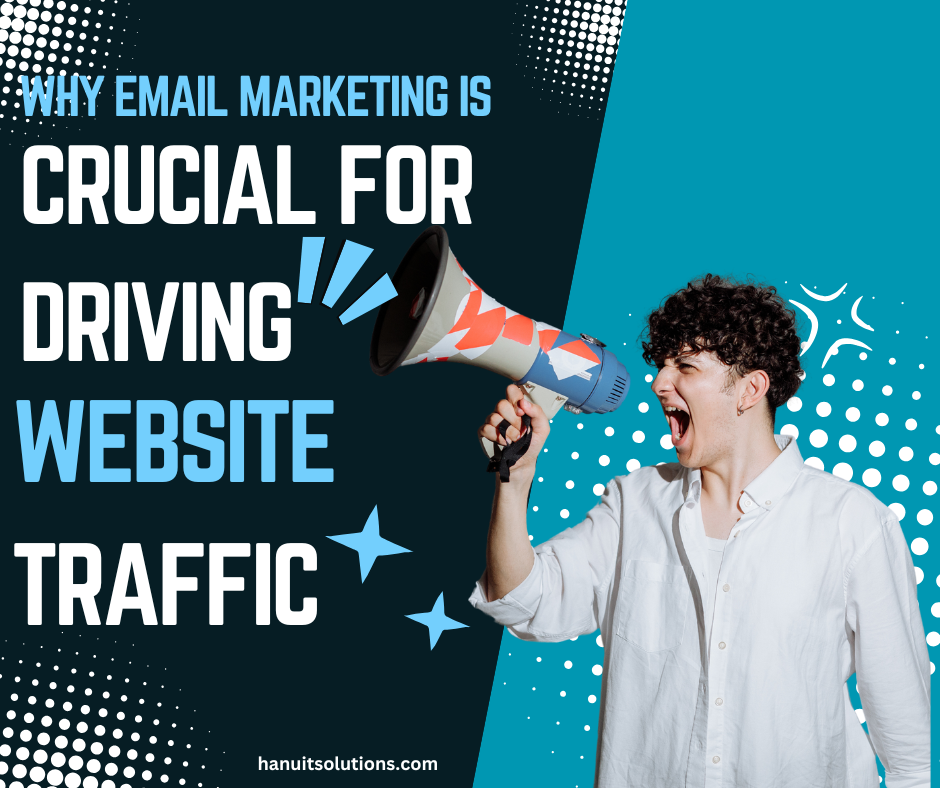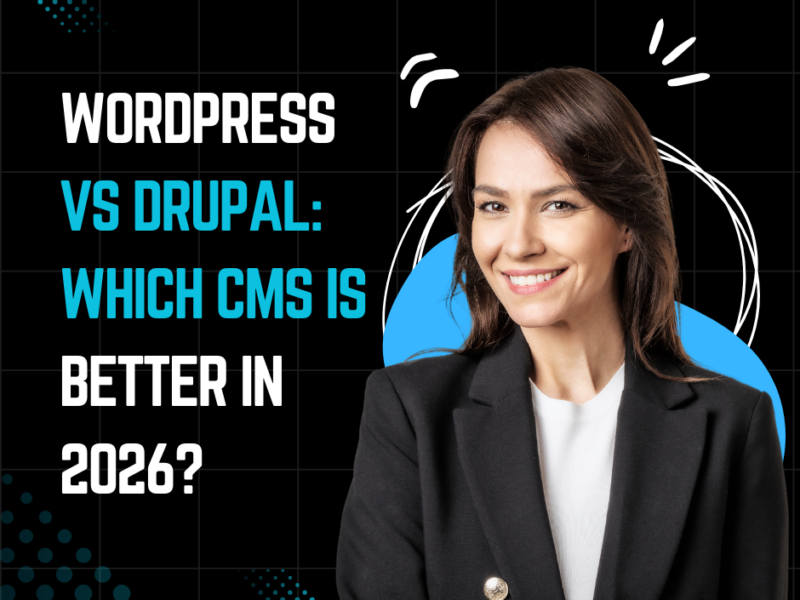Why Email Marketing is Crucial for Driving Website Traffic
In today’s digital landscape, website traffic is vital for any online business or brand looking to grow. While there are several ways to increase traffic, email marketing remains one of the most effective strategies. Often underrated, email marketing can directly reach potential and returning customers, driving them to your website and boosting engagement, conversions, and sales.
In this article, we’ll explore why email marketing is crucial for driving website traffic and how you can leverage it to maximize your online presence.
What is Email Marketing?
Email marketing involves sending commercial messages to a group of people using email. These messages could be newsletters, promotional offers, product announcements, or personalized recommendations designed to engage the audience and encourage them to take action, such as visiting your website.
Email marketing offers a direct line to your audience, delivering tailored content to their inbox. It’s a powerful tool for staying connected with existing customers and leads, keeping your brand top-of-mind, and driving traffic to your website.
1. Direct Communication with Your Audience
Unlike social media or paid ads, email marketing allows for direct communication with your audience. You don’t have to worry about algorithms limiting your reach—your message goes straight to the inbox. This control over communication ensures that your subscribers receive important updates, offers, and content that encourages them to visit your website.
Direct communication also enables you to build a stronger relationship with your audience. Personalized emails that speak directly to their needs or interests can motivate users to click through and explore more of what your site has to offer. Studies have shown that personalization in email marketing can improve click-through rates by up to 14%.
2. Highly Targeted Campaigns
One of the key benefits of email marketing is the ability to create highly targeted campaigns. By segmenting your email list based on customer behavior, preferences, or demographics, you can tailor content to specific audiences. For instance, if someone has browsed certain products on your website, you can send them personalized emails featuring similar items or exclusive deals.
These personalized and targeted emails are more likely to drive traffic to your website because they align with the recipient’s interests. When subscribers receive content that resonates with them, they’re more inclined to engage, click, and visit your site.
Also read: Top 7 SEO Trends You Need to Boost Website Traffic in 2024
3. Increased Brand Awareness
Email marketing is a great way to keep your audience updated on your brand’s latest offerings, news, or content. Each time you send an email, you remind your audience that your business exists, encouraging them to visit your website and explore what’s new.
Consistent, well-crafted email campaigns build brand awareness and authority. By delivering valuable information, tips, or promotions directly to your audience’s inbox, you reinforce your brand’s message, keeping users engaged and likely to revisit your site.
4. Nurturing Leads and Building Trust
Email marketing isn’t just about making a sale; it’s also about building relationships. Email campaigns can help nurture leads by offering educational content, insights, or solutions to potential customers’ problems. Over time, as you consistently provide value through your emails, you build trust with your audience, making them more likely to visit your website when they’re ready to make a purchase or learn more.
For example, a blog post you’ve recently published or an informative guide available on your website can be shared in your emails. These resources can drive subscribers to visit your site to access the full content, ultimately boosting traffic.
5. Cost-Effective Strategy
Email marketing is one of the most cost-effective digital marketing strategies available. Unlike paid ads that require constant investment, email marketing platforms are relatively affordable, especially considering the potential return on investment (ROI). With a properly managed email list and engaging content, you can repeatedly drive traffic to your site without breaking the bank.
Furthermore, email marketing allows for easy automation, enabling you to set up drip campaigns or auto-responders that continuously drive traffic to your website with minimal ongoing effort.
6. Re-Engage Dormant Customers
Over time, some customers may drift away from your website, whether due to inactivity or competing interests. Email marketing offers a fantastic opportunity to re-engage these dormant customers. Sending personalized re-engagement emails with special offers, discounts, or reminders about new products can spark interest and drive them back to your website.
By tracking which users are less active, you can send targeted “We Miss You” emails or reminders that reignite interest and entice them to explore what’s new on your website.
7. Measurable Results and Insights
One of the advantages of email marketing is its ability to provide measurable results. You can track open rates, click-through rates (CTR), and conversion rates to understand how well your emails are performing. These insights allow you to continuously refine your email strategy, ensuring your campaigns are optimized for maximum engagement and website traffic.
By understanding what content or offers generate the most clicks and visits, you can tailor future campaigns to increase traffic further. The feedback loop email marketing offers helps you adjust strategies to meet your business goals more effectively.
How to Use Email Marketing to Drive Website Traffic
Now that we’ve covered why email marketing is crucial for driving website traffic, let’s dive into some practical steps you can take:
Create Compelling Subject Lines: The first step to boosting website traffic through email is getting your subscribers to open the email. Craft subject lines that pique curiosity or clearly state the value of your message.
Include Clear CTAs (Calls-to-Action): Ensure every email includes a clear call-to-action that encourages users to visit your website. This could be a button to read a blog post, shop a sale, or explore new products.
Segment Your Audience: As mentioned earlier, segmenting your audience ensures your content is tailored to their specific interests, increasing the likelihood of driving traffic to your site.
Automate and Personalize Emails: Use automation tools to send personalized recommendations based on user behavior. Automation saves time while ensuring that subscribers receive timely, relevant content that drives them to your website.
Optimize for Mobile: Since many users open emails on mobile devices, ensure your emails are mobile-friendly to avoid losing potential visitors due to poor formatting.
FAQs
How does email marketing improve website traffic?
Email marketing helps improve website traffic by providing direct communication with subscribers. By delivering targeted content, promotional offers, or updates, emails entice recipients to click through and visit the website.
What types of emails drive the most traffic?
Newsletters, product announcements, personalized recommendations, and promotional emails typically generate the most traffic. Engaging content paired with clear calls to action will boost click-through rates and traffic.
Can email marketing work for small businesses?
Yes! Email marketing is cost-effective and scalable, making it an ideal tool for small businesses. With proper segmentation and content strategy, small businesses can drive significant traffic to their website.
How often should I send emails to drive traffic?
The frequency depends on your audience and the type of content you provide. Generally, weekly or bi-weekly emails keep your audience engaged without overwhelming them.
What’s the best email marketing platform to use?
Popular platforms like Mailchimp, Constant Contact, and Sendinblue offer user-friendly interfaces, automation tools, and analytics, making them excellent choices for email marketing campaigns.
Conclusion:
Email marketing remains a critical tool for driving website traffic because of its direct, personalized communication with your audience. With the ability to target specific segments, deliver relevant content, and build trust over time, email marketing serves as a cost-effective strategy to keep your brand top-of-mind and guide users back to your website. Whether you’re nurturing leads, re-engaging dormant customers, or promoting new products, well-crafted email campaigns can significantly boost traffic, resulting in increased conversions, stronger customer relationships, and long-term business growth. By embracing email marketing as part of your digital strategy, you can ensure consistent engagement and a steady flow of visitors to your site.








